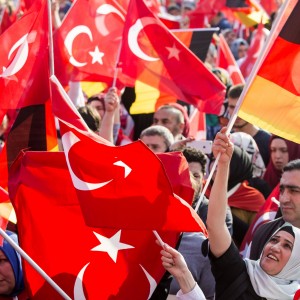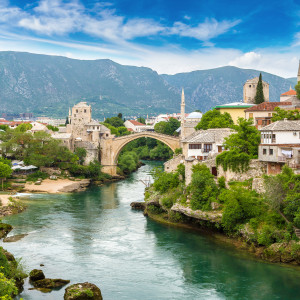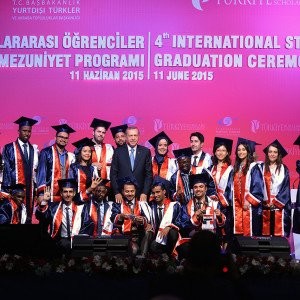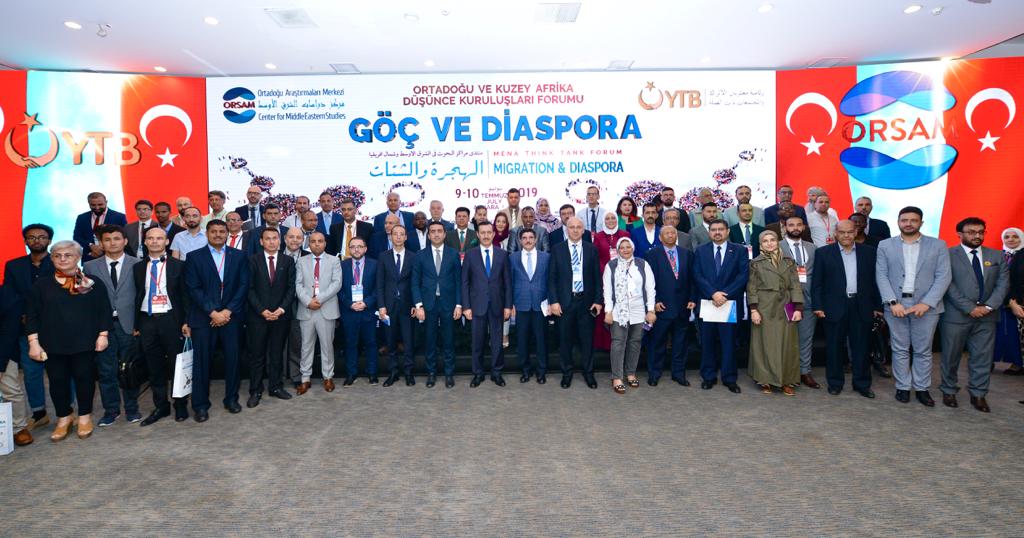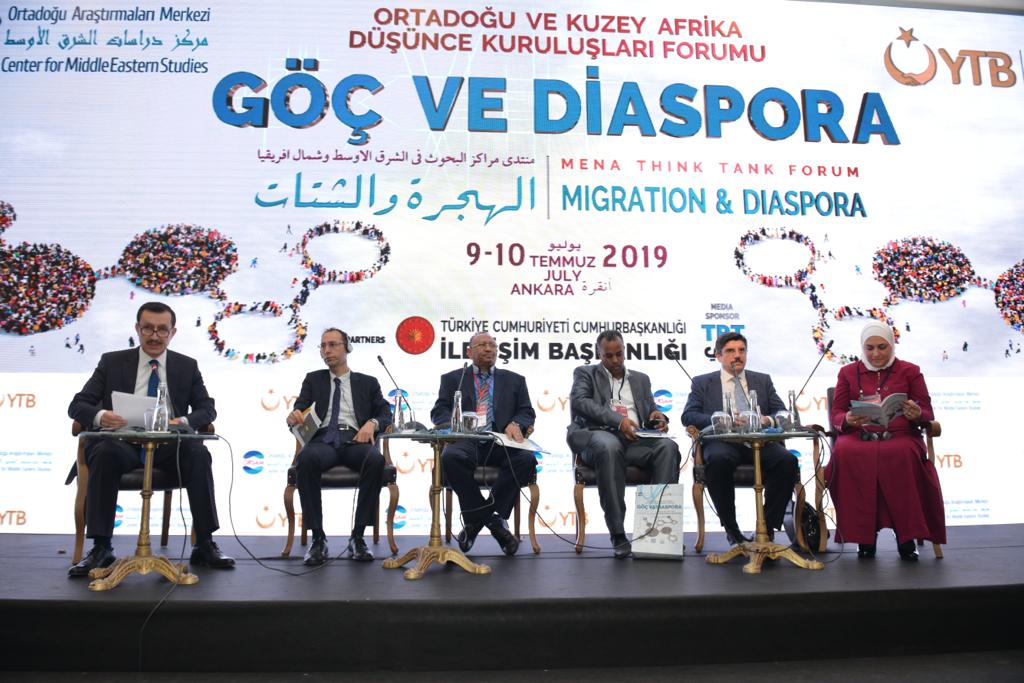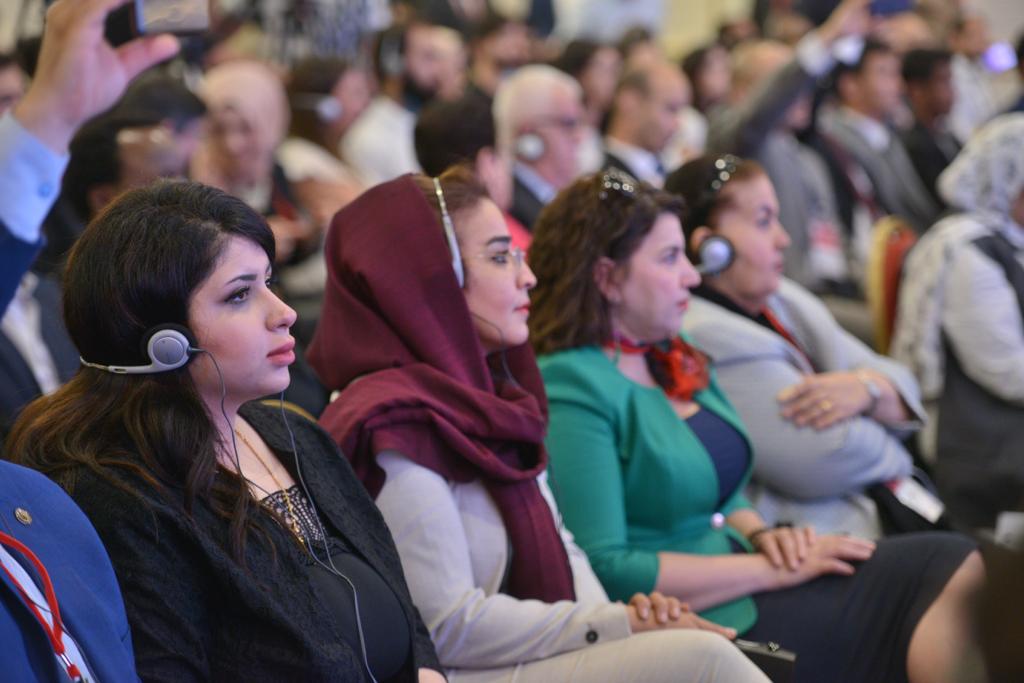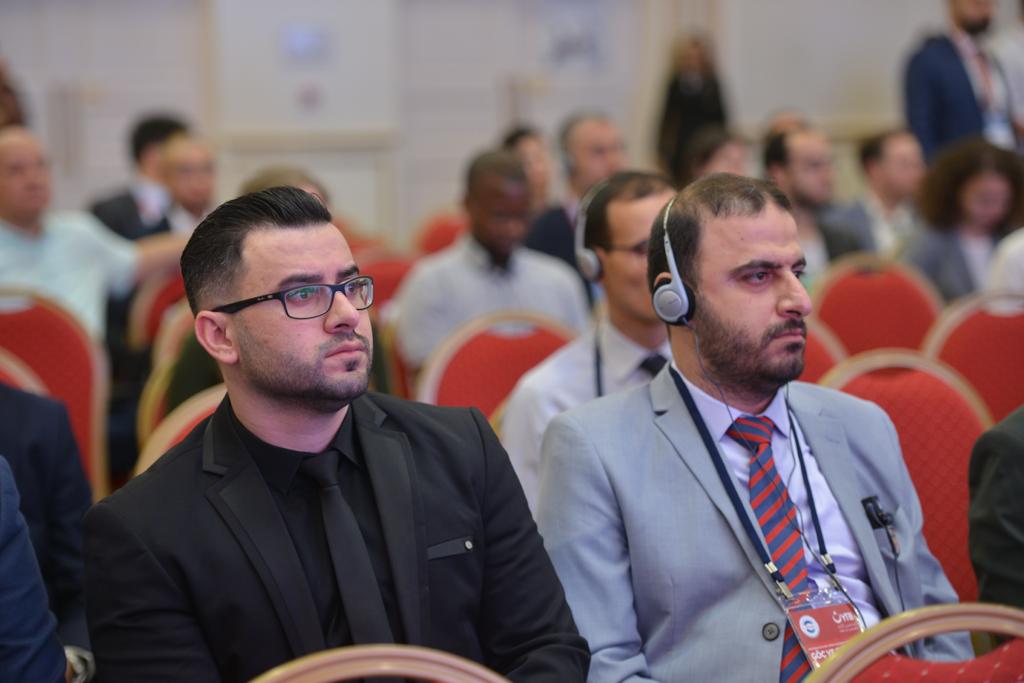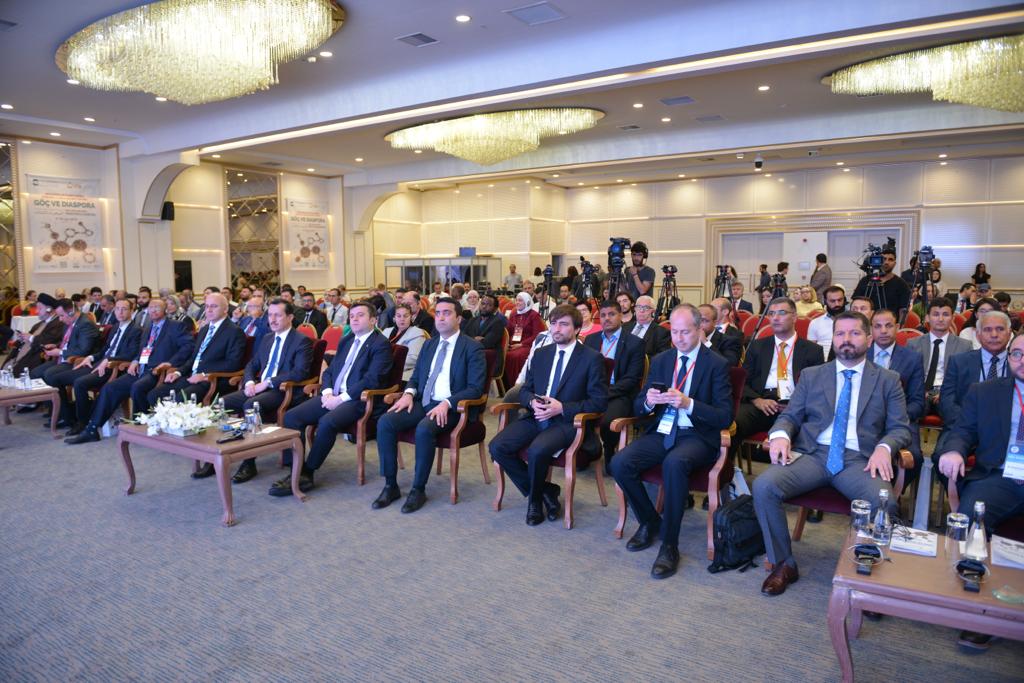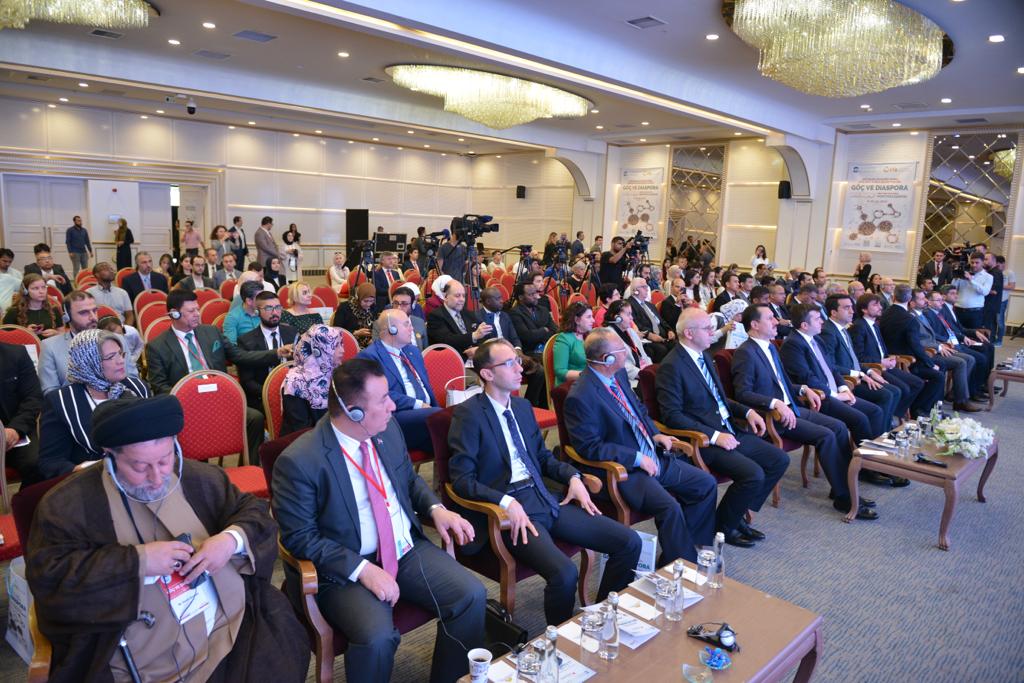“Middle-East and North Africa Think Tanks Meetings” given start
“Middle-East and North Africa Think-Tanks Meetings” forum, organized in cooperation with Presidency for Turks Abroad and Related Communities (YTB) and ORSAM (Center for Middle Eastern Studies) has begun.
“Middle-East and North Africa Think Tanks Meetings” forum organized in cooperation with the Presidency for Turks Abroad and Related Communities (YTB) and ORSAM, along with contributions from the Presidency of The Republic of Turkey Directorate of Communications has begun in Ankara. The forum will continue under the theme “Immigration and Diaspora” for two days.
Deputy Minister of Foreign Affairs Yavuz Selim Kıran, Deputy President of YTB Abdulhadi Turus and the Head of Orsam Prof.Dr. Ahmet Uysal and many guests attended the opening session of the forum held at a hotel in the capital city of Turkey.
“WE ARE INVITING THE INTERNATIONAL SOCIETY TO A FAIR SHARING OF BURDEN AND RESPONSIBILITY”
Deputy Minister of Foreign Affairs Yavuz Selim Kıran, in his opening speech stated that the issue of immigration is an extremely deep issue with various dimensions, and highlighted that historically Turkey has been both a source country of immigrants and a hosting country. Kıran, declaring that more than 3.5 million citizens of Turkey that are in Germany is alone making a critical contribution to the employment of Europe, underscored that Turkish citizens in this country is employing hundreds of thousands of European people in the business they have established there.
Underlining the critical position of the phenomenon of immigration and moving from immigration to diaspora, Kıran noted that Islamophobia, xenophobia and anti-immigrant policies in the West are now at peak. Kıran pointed out that unless a measure is taken against these threats and provocations today, we will have to face bigger issues tomorrow. Stating that it is apparent that the instabilities, wars and conflicts in the Middle East and Northern Africa geographies are sentencing the people there to forced migration, Kıran highlighted that while handling the issues of immigration and diaspora, the reasons that forced people to migrate must be understood.
Declaring that it is out of the question for Turkey to ignore the events going on in Syria for which Turkey has lifted the border barbed wires in the past, or to ignore the cries for help of Syrian people with whom Turkish people share a line of descent, Kıran said “Since the beginning of the war, maintaining our open door policy, we opened both our doors and hearts to our Syrian brothers.”
Kıran said that the whole world is witness to Turkey’s leading position in important policies, and that they appreciate Turkey, the host country with more than 4 million immigrants, in issues such as sheltering immigrants, their health rights, their employment and education. Kıran, pointing out to the immigrant agreement signed between European Union (EU) and Turkey on March 18, 2016, said that “The number of irregular immigrants, that was once daily over 7 thousand in the Aegean Sea in 2015 and prior years, is now below 80 a day, showing that an important threshold has been crossed. This has been achieved by Turkey’s sensitivity to the issue and the commitment of Turkey to this agreement.”
"THIS FORUM IS ALSO A CIVIL INITIATIVE"
Deputy President of YTB Abdulhadi Turus drew attention to various activities organized by YTB within the scope of the Cultural Cooperation and Mobility Program (İHP) towards think-tanks and research centers in order to achieve intellectual cooperation in sister geographies and to achieve a common agenda in regional matters.
Turus stated that for this forum, 700 academicians’ papers were gathered in Arabic, English and Turkish, and following the evaluations, authors of 60 papers were invited to the forum, and he expressed his gratitude to those who contributed to this forum. Pointing out that no country can turn a blind eye to the immigration mobility, Turus noted that Turkey was in the second half of the 20th Century heavily an “sending” country, whereas it was in the first quarter of the 21st century an “immigrant-receiving” country. Turus also said that through the experience it has gained in the field and with the altruism it has shown, Turkey has a word to say in the decisions on the matter and the works carried out.
Highlighting that the majority of the world’s immigrants are from Middle-East and North Africa, Turus said that “Migrations from Middle-East and North Africa that influence the countries of the region and all of the countries in the world in various manners and for long-term have importance because of the individual tragedies they cause and their challenging potential to the current manner of operation of our world.”
Turus drew attention to the fact that today’s forum shall enable the countries that actually suffer from the migration mobility to bring forth their academic and humanitarian perspective to this field and said “This forum organized in our country is also a civil initiative. Ideas brought together shall enable to form a common terminology regarding the human mobility for immigration purposes and the consequent diasporas and therefore would help to create a common attitude.”
"IMMIGRANTS FROM PALESTINE SUFFERED THE GREATEST TRAGEDY OF THE PAST CENTURY "
The Head of ORSAM, Prof. Dr. Ahmet Uysal stated that they pursue the academic endeavors regarding the economic and social issues of the Middle-East and North Africa region and that ORSAM, with the research it produces, offers contributions for better understanding of the region. Uysal noted that Middle-East and North Africa were invaded a century ago and the region yet has to gain its independence and said that despite a century has passed, Arab people still cannot determine their own destiny in full.
Uysal pointed out that in the Cold War era that followed World War II, the issues of the Arab world were left in shadows to a great extent, and within this context, Israel appeared to hinder the unification and strengthening of the region. Uysal also pointed out that the migrants and refugees cannot achieve comfort easily in their host countries, noting that cultural differences, discrimination and the Islamophobia that reached a critical dimension in the last period are leaving the immigrants in the Western countries in a tight situation.
Uysal underlined that Palestinian immigrants who are left stateless since their lands are taken from them set the most striking example in this issue, and said that “The immigrants from Palestine suffered the greatest tragedy of the past century, with their numbers over 5 million world-wide.” Uysal stated that Palestinian immigrants suffer similar troubles with other immigrants in the Western countries to which they migrate, and expressed his view that Palestinians who escaped from the oppression of Israel in their own home cannot find peace even in the remote corners of the world. Uysal wished that today’s forum with the attendance of many experts would provide important contributions to the field of immigration and diaspora.





